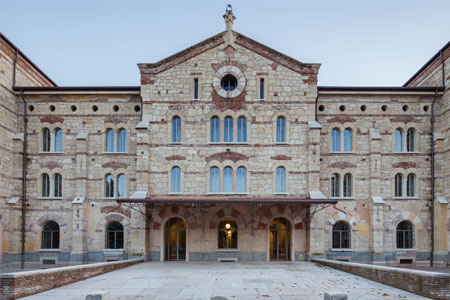|
Tourism management
standard compliant
Scimago
|
| Tourist behavior |
David D'Acunto
Vania Vigolo
|
Study of tourist behavior during the various phases of the tourist experience. Use of qualitative and quantitative research methods to identify tourists’ needs, expectations, perceptions, attitudes and satisfaction. Analysis of the relationship between tourist behavior and technology, with specific regard to cohort differences. Study of older tourists’ behavior and identification of marketing strategies aimed at this specific market segment. |
| Destination management |
Francesca Simeoni
Vania Vigolo
|
Study of tourist destinations and local tourism systems and their impact. Particular emphasis is placed on the study of the motivations behind the choice of destination by tourists and their subsequent level of satisfaction. Analysis of the Destination Management Organization (DMO): structure and performance. Qualitative research (with focus groups and interviews) and quantitative (with data collection and processing through the use of SPSS). |
| En plein air tourism |
Francesca Simeoni
|
Study of demand and supply that revolves around tourism en plein air. In particular, it analyzes the motorhome sector, the main "vehicle" of itinerant tourism and the accommodation facilities dedicated to it. Use of tools for qualitative research (primarily focus groups and interviews) and, in part, for quantitative research (basic statistical tools). |
| Hospitality |
David D'Acunto
Marta Maria Ugolini
|
Analysis of marketing strategies adopted by hospitality actors, with a specific interest on the use of social couponing and on its impact for the firm, including its ability to stimulate eWOM. Study of the adoption of green strategies by hotels. Research on the impacts of the sharing economy in the hospitality sector. Use of quantitative methods, content analysis and case studies. |
| Hospitality management |
David D'Acunto
Vania Vigolo
|
Study of the hospitality industry, with particular regard to accommodation services. Identification of strategies aimed at improving service quality and customer satisfaction in this specific service setting. Analysis of user-generated content with the support of content analysis and sentiment analysis techniques. Study and definition of online review management strategies. |
| Events and tourism management |
Paola Castellani
|
Study of events as tools of territorial marketing, promotion and safeguard of the territory annd its social, cultural and hystoric heritage, as resources of tourist attraction. Study of sustainable events as good practices to raise awarness, support and develop the culture of sustainability and to enhance the sustainable development of the territory. Use of qualitative methods (focus groups and interviews). |
| Corporate museum and tourism |
Paola Castellani
|
Study of corporate museums as tools for the promotion of industrial and cultural tourism and as attractive elements of the territory in which they are located when they manage to create a bond of integration and shared history, presenting it to the visitor/tourist. Use of qualitative methods (focus groups, surveys and interviews). |
| Strategic planning of tourism destinations |
Marta Maria Ugolini
|
Analysis of the needs and perceptions of tourism destinations’ stakeholders (economic operators, tourists, residents, policy makers) with the aim of developing strategic plans for the development and/or repositioning of tourism destinations. Use of multiple methods (such as questionnaire-based surveys, focus groups, in-depth interviews). |
| Marketing strategies and investments of tourism firms |
Fabio Cassia
|
Measurement of marketing strategies and investments of tourism firms (in detail: travel agencies, hotels and tour operators). Impacts of the adoption of tools and routines to measure marketing performance (i.e., “Marketing Performance Measurement Systems”) on firm performance. Focus on the effectiveness of a specific tool, i.e. social couponing. Analysis of the strategies to stimulate and manage online reviews. Use of both qualitative and quantitative methods. |
| Wine and food tourism |
Roberta Capitello
|
Wine tourism; wine tourist behavior; food and wine territorial brands and destination marketing; hospitality settings and food choice; craft beer and craft wine in out-of-home consumption contexts; place identity, place image and the role of typical wine and food supply; marketing of terroir products. |
| Rural tourism |
Diego Begalli
Katia Laura Sidali
|
Types of rural tourism; territorial and business strategies; relationships between tourism, environment and local development; tourism and ecosystem services; tourists’ preferences and behavior; wine and rural hospitality; tourism investments; tourism business plans; case study analysis; tourism in rural areas. |







